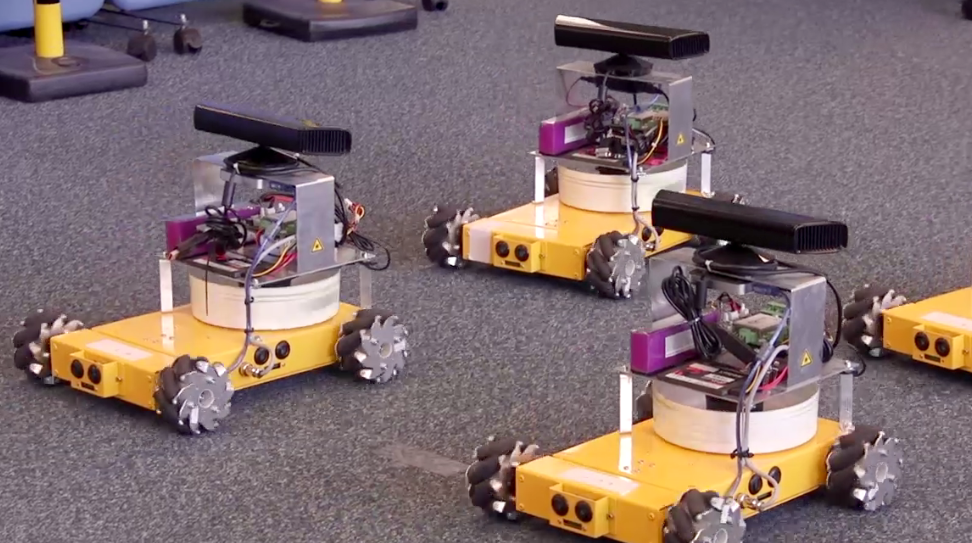Groepen robots leren samenwerken
Ming Cao is hoogleraar netwerken en robotica aan de RUG. Cao is een pionier in de ontwikkeling van bio-geïnspireerde besturingssystemen waarmee groepen robots zelfstandig een taak kunnen uitvoeren.
In de toekomst zal er steeds meer sprake zijn van autonome auto’s en robots die rekening met elkaar moeten houden. Cao werkt voor de ontwikkeling daarvan veel samen met sociologen, wiskundigen en biologen. De algoritmes die voor de robots zijn ontwikkeld zijn bijvoorbeeld deels geïnspireerd op hoe dieren zich bewegen, met name vissen en vogels, die ook in formaties opereren. ‘Vroeger ontwierpen we robots die we simpelweg instrueerden om samen te werken’ aldus Cao. ‘Nu blijkt dat robots die zelf beslissingen kunnen nemen niet altijd van nature samenwerken, vanwege strijdige belangen. Met inzichten uit de sociologie over menselijke samenwerking kunnen we dat veranderen.’

Meer nieuws
-
17 februari 2026
De lange zoektocht naar nieuwe fysica
-
10 februari 2026
Waarom slechts een klein aantal planeten geschikt is voor leven
